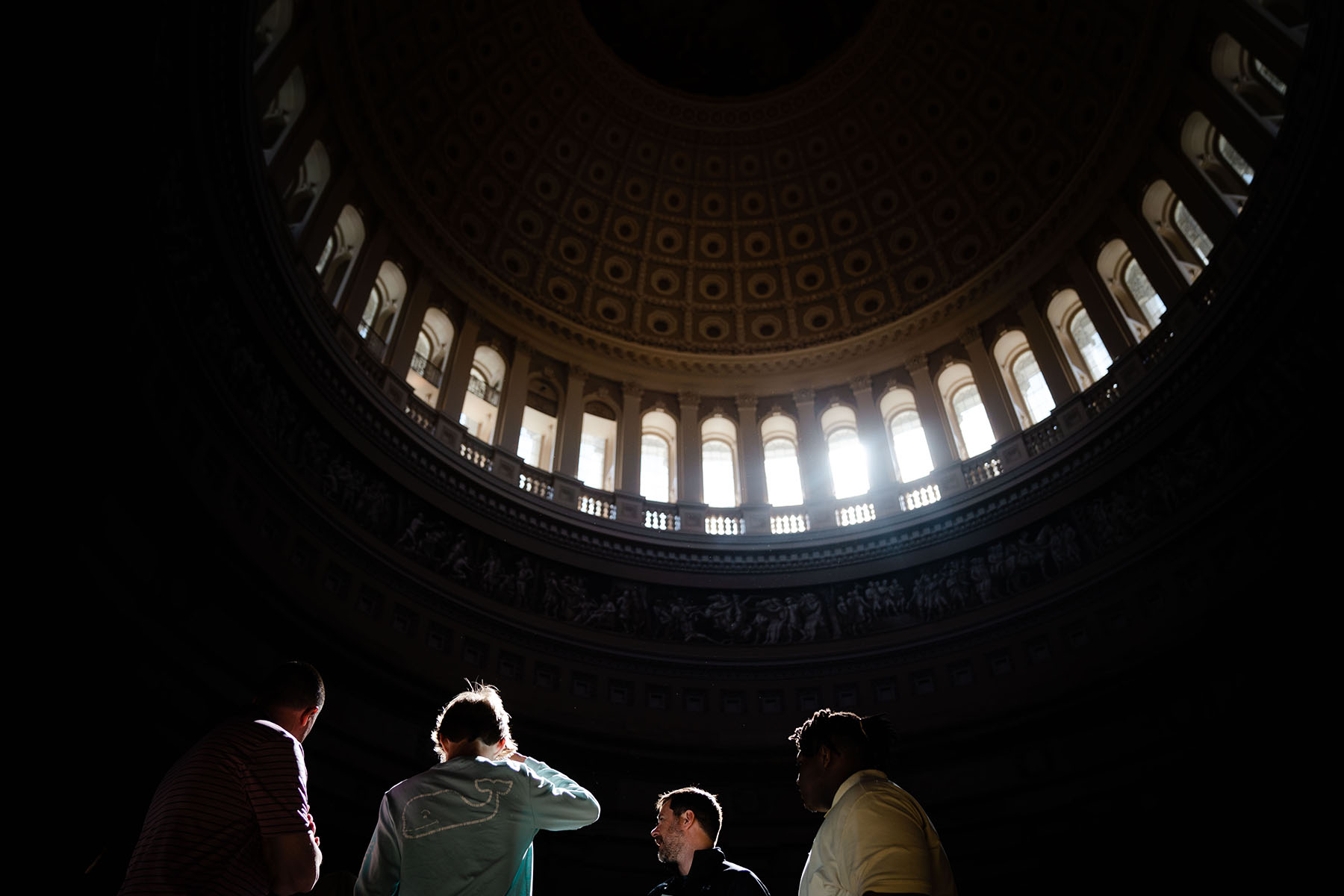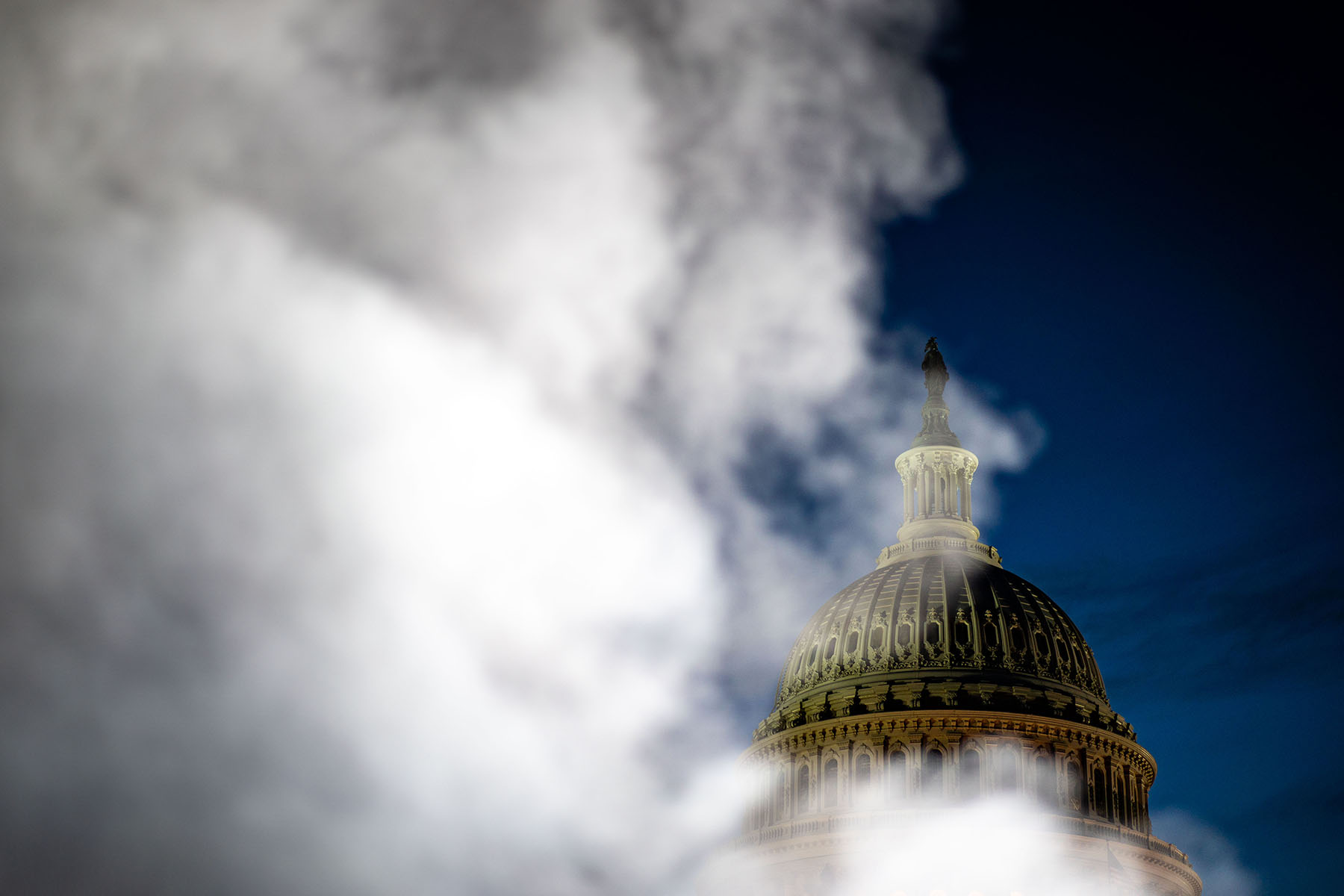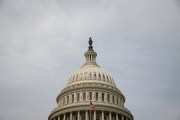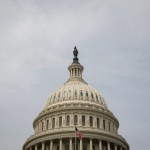Your trusted source for contextualizing politics news ahead of Election 2024. Sign up for our daily newsletter.
Update, September 30: The House and Senate have passed a bill to fund the government for the next 45 days, until November 17.
Congress has until midnight Saturday to pass a spending package for the 2024 fiscal year or the federal government will shut down, triggering furloughs that could affect as many as a million federal workers and have economic impacts across the country.
As of Friday afternoon, the two chambers had yet to come to an agreement to keep the government open.
-
Read Next:
Here’s what happens if Congress can’t pass a spending plan and the government shuts down.
What is a government shutdown?
A shutdown means that all federal agencies must stop functions that are deemed “nonessential” until money is appropriated for the next fiscal year. Mandatory spending — money for programs including Medicare, Medicaid and Social Security — is not affected. Government functions deemed essential by individual agencies, along with the Office of Management and Budget, continue.
What government functions could shut down?
Every shutdown is different, and there’s a lot we won’t know until it starts and federal agencies begin to furlough workers.
While shutdowns do not necessarily affect the benefits that Americans receive, such as SNAP, the food assistance program for low-income people that is administered by the Agriculture Department, a shutdown could impact how these benefits are distributed if it lasts beyond 30 days, according to the liberal-leaning Committee for a Responsible Federal Budget (CRFB), a nonprofit group that analyzes budget policy. Likewise, Social Security and Medicare benefits would continue as normal for most people, but checks to new beneficiaries could be delayed. During the 1995-1996 shutdown, more than 10,000 Medicare applicants were temporarily turned away, according to the CRFB.
Past shutdowns have impacted national parks, which continued to admit visitors in some cases but stopped many services and closed buildings.
The White House said last week that a government shutdown would, among other things, result in active-duty military personnel and federal law enforcement officers working without pay until they are retroactively made whole after funds are appropriated; undermine clinical trials related to cancer and Alzheimer’s research at the National Institutes of Health; cause 10,000 children to lose access to the early-education program Head Start; force air traffic controllers and TSA agents to work without pay until the shutdown ended, potentially resulting in longer wait times and travel delays; and increase the risk that the Federal Emergency Management Fund will be depleted and complicate new emergency response efforts.

Has the government shut down before?
There have been 21 government shutdowns of at least one day since 1977. Many of these were short — a single day, a weekend — and did not meaningfully impact government services.
The longest government shutdown was during the Trump administration in early 2019, which lasted a full 34 days, weeks longer than past shutdowns.
How will workers be affected?
As many as 4 million workers could be affected, labor unions told ABC News.
About 2.2 million civilian workers are employed by the federal government, many of whom would either work without pay until a shutdown ends or be furloughed. During the 2019 shutdown, about 800,000 federal workers were furloughed. Government contractors could likewise go without pay and may not be reimbursed. Active-duty military service members and law enforcement are deemed essential and would therefore continue working, but their pay would be delayed.
Regions with higher concentrations of federal workers would be disproportionately affected. There are about 370,000 federal workers in the Washington, D.C., area, for example. Democratic Rep. Abigail Spanberger of Virginia, pointing to the number of federal workers in her state who would be impacted, earlier this year introduced a bipartisan bill that would block members of Congress from being paid during government shutdowns.
A government shutdown has cascading effects. The economy in Washington, for example, is dependent on tourism. In 2019, the Smithsonian institutions shut down after they ran out of cash reserves, and the District of Columbia government estimated that the shutdown was costing the city as much as $12 million a week, mostly from lost sales tax revenue from restaurants, hotels and retail establishments. It also impacted food banks and other support services in Washington and elsewhere as they served an influx of furloughed workers trying to make ends meet.








